This post is part of the WLA blog’s 2022 series written by guest writers. These writers are graduate students in the Public History program at Loyola University Chicago. Each visited the archives during Fall 2021, delved into the collections, and wrote about a topic not yet explored here. We are excited to share their research and perspectives!
For 15 years Mundelein College offered Preschool and Kindergarten classes. Students of employees of the College and Rogers Park residents received an excellent early childhood education until the school’s sudden closing in 1987.

“The heart of the school’s curriculum is play. Young children learn through play…” [2]
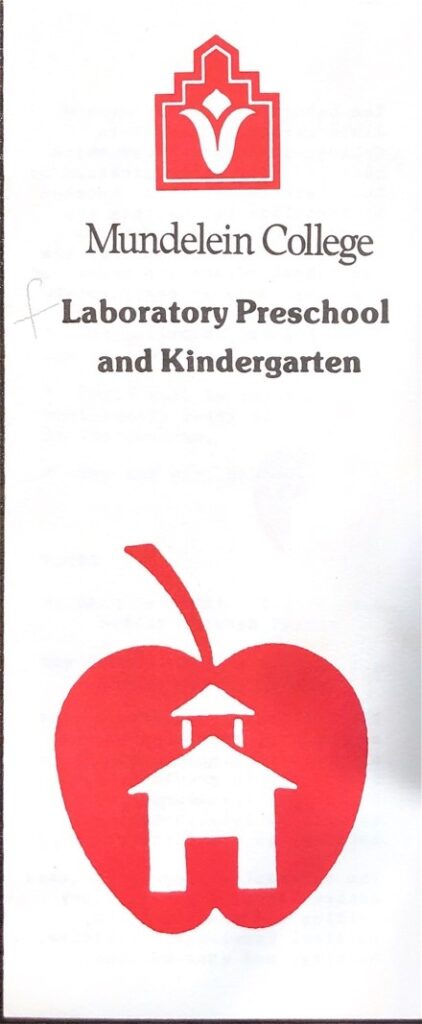
[3] The Laboratory Preschool and Kindergarten run by Mundelein College operated for fifteen years on Mundelein’s campus in Rogers Park, Chicago. The school’s philosophy from its founding was to “recognize that while all children have the same basic needs…each child is a unique human being with unique strengths and needs” [4]. With these principles, the teachers strove to meet each child’s needs throughout the fifteen years the school operated. The school was closed in the summer of 1987 amid conflict between parents, teachers, and administrators. Despite the passionate ending to the school’s existence, the education and development of the children who attended are what is remembered by teachers, families, and alumni.
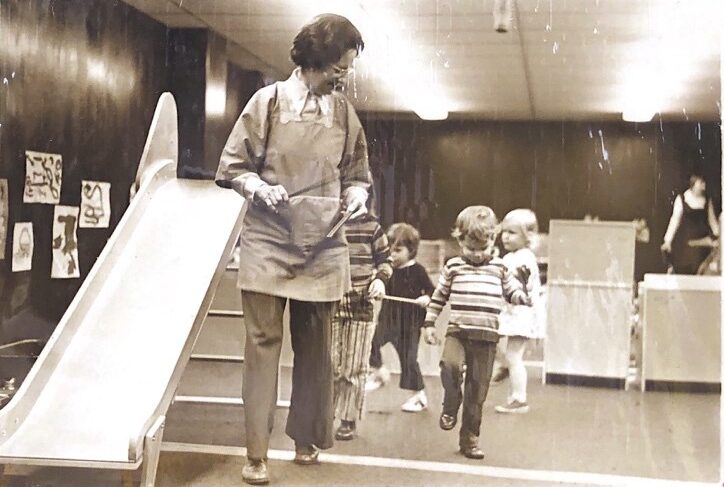
Mundelein College’s Laboratory Preschool and Kindergarten was established in the fall of 1972. The Early Childhood Education Program offered at Mundelein College was the first such program in the state of Illinois to be approved by the Illinois Board of Teacher Certification. The goal of opening a laboratory early childhood education center was for the benefit of Mundelein students gaining firsthand experience, for parents to strengthen their knowledge and role as the primary educators of their children, and for other College departments (Psychology, Sociology, Student Nurses) to observe the development and behavior of young children.
The Laboratory School featured many opportunities, which at the time of the early 1970s were novel and innovative. Children were to have daily outdoor activity time to allow for large muscle development. Perhaps different from outdoor time expectations in today’s preschool and kindergartens however, they were expected to go outside unless the wind chill was below zero degrees!

Children were also expected to help cook and prepare snacks. In the Laboratory School there existed an emphasis on developing independence. The importance of healthy and nutritious foods was also emphasized in the students’ education.
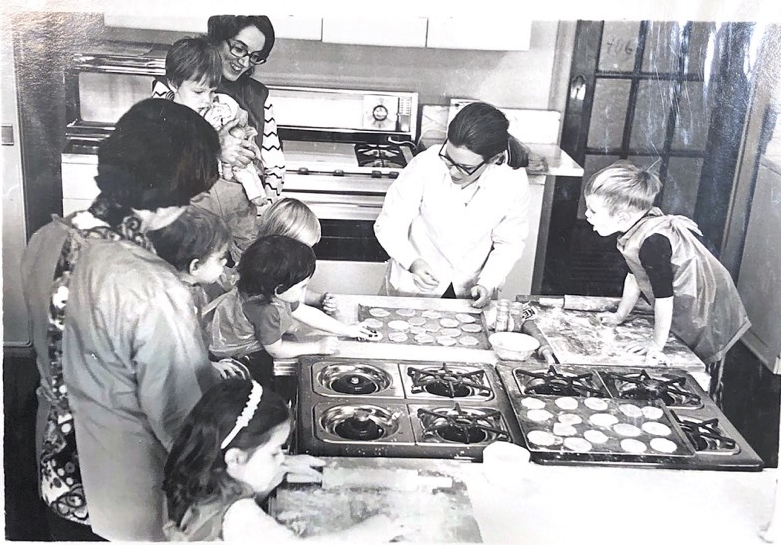

Part of the education students received at the Laboratory School was a concrete application of the Jesuit values of service and social justice. For an ecology lesson in April of 1977 that was featured in the Chicago Tribune [8] students from both the preschool and the kindergarten conducted a litter clean-up campaign. In addition to collecting litter, the children planted vegetables in planters made from old tires [9]. Parents frequently expressed their gratitude for the well-rounded education their children were receiving.
In June 1987 the parents of the children attending the Laboratory Preschool and Kindergarten were sent a letter stating that the school would be closing at the end of the summer session (just 60 days before the start of school in the fall). The letter stated, “due to a combination of circumstances…we find that it is no longer feasible for us to continue to underwrite this program,” (i.e. a lack of full enrollment and high staff turnover) [11]. A strong emotional reaction followed this announcement from both school staff and parents, claiming that adequate and timely communication had not been provided, as well as claims by educators of the school that the reasons indicated for the school’s closure were fabricated. Parents of the students wrote a strongly worded letter to President, Sister Mary B. Breslin B.V.M., stating: “Many of us searched for a long time until we found Mundelein [Laboratory School]. It is truly a special place” [12].
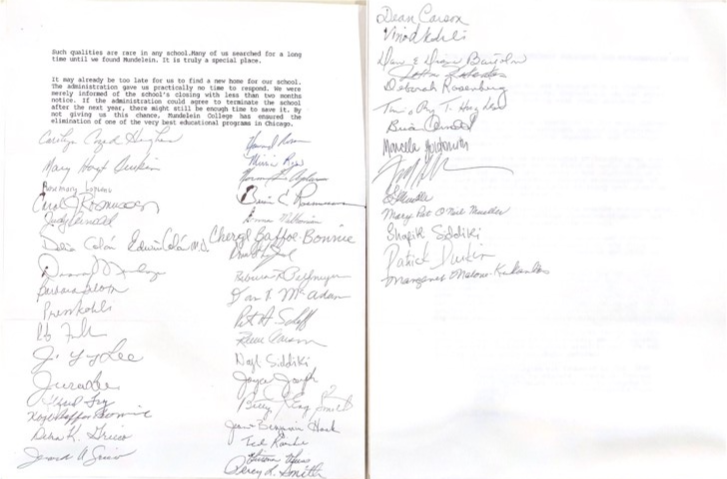
Mundelein College Laboratory Preschool and Kindergarten did close the summer of 1987 after educating young children for 15 years. The school offered, during that time, a place where each child was encouraged to learn and develop at the pace of their own individual needs. Despite its sudden and unexpected closing, during the time that it operated both Mundelein College students and the young children were able to grow in new and unique ways.

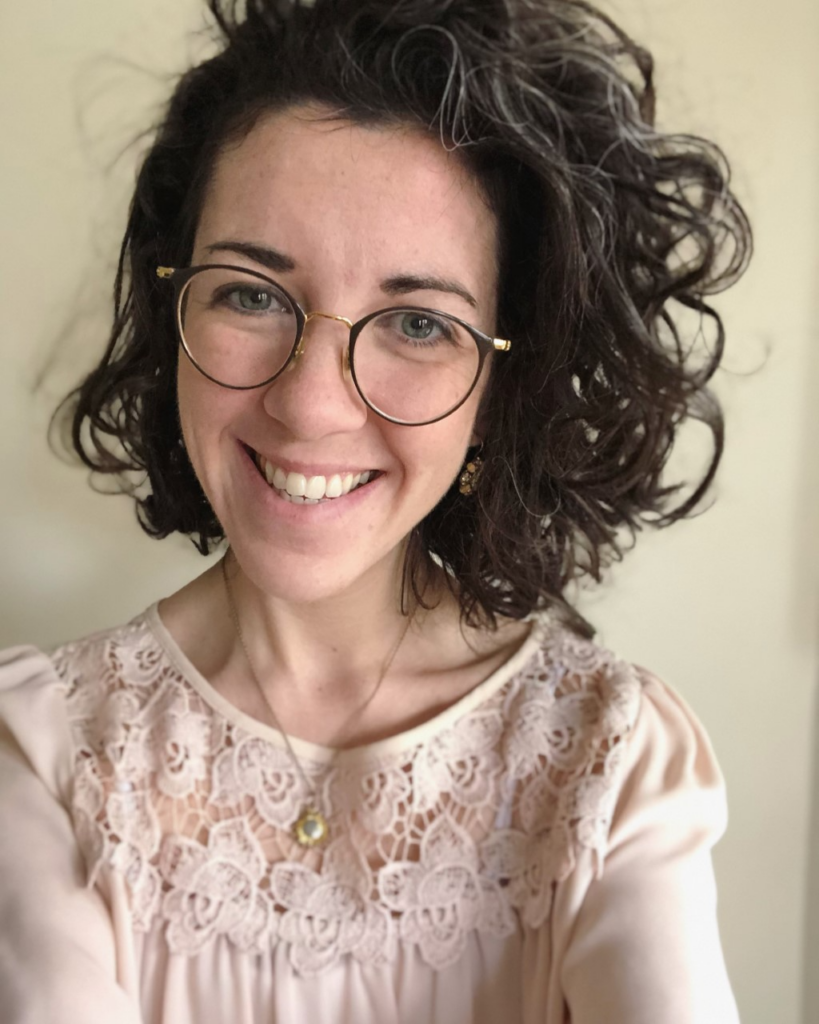
Lauren is a first-year graduate student in Loyola University’s Public History program. She Iives in Lincoln Park currently but hails from the Pumpkin Capital of the World, Morton IL and loves all things pumpkin.
[1] Women and Leadership Archives. Loyola University Chicago. Mundelein College Paper Records, Sharon H. Cahill ’72, Watch Me Grow. Box 284, Folder 14.
[2] Women and Leadership Archives. Loyola University Chicago. Mundelein College Paper Records, The Mundelein College – Department of Education, Laboratory Preschool and Kindergarten Parent Handbook. Box 284, Folder 13.
[3] Ibid.
[4] Women and Leadership Archives. Loyola University Chicago. Mundelein College Paper Records, Education Plan. Box 285, Folder 2.
[5] Women and Leadership Archives. Loyola University Chicago. Mundelein College Paper Records, HICA Scrapbook. Box 338.
[6] Women and Leadership Archives. Loyola University Chicago. Mundelein College Paper Records, The Mundelein College – Department of Education, Laboratory Preschool and Kindergarten Parent Handbook. Box 284, Folder 13.
[7] Women and Leadership Archives. Loyola University Chicago. Mundelein College Paper Records, HICA Scrapbook. Box 338.
[8] Ecology Buffs Attacking Litter. April 23, 1977. Section 1. Chicago Tribune, Chicago.
[9] Women and Leadership Archives. Loyola University Chicago. Mundelein College Paper Records, Correspondence and Records. Box 285, Folder 2.
[10] Ibid.
[11] Women and Leadership Archives. Loyola University Chicago. Mundelein College Paper Records, Closing. Box 285, Folder 5.
[12] Ibid.
[13] Ibid.
[14] Women and Leadership Archives. Loyola University Chicago. Mundelein College Paper Records, Sharon H. Cahill ’72, Watch Me Grow. Box 284, Folder 14.
Loyola University Chicago’s Women and Leadership Archives Blog is designed to provide a positive environment for the Loyola community to discuss important issues and ideas. Differences of opinion are encouraged. We invite comments in response to posts and ask that you write in a civil and respectful manner. All comments will be screened for tone and content and must include the first and last name of the author and a valid email address. The appearance of comments on the blog does not imply the University’s endorsement or acceptance of views expressed.Questions? Please contact the WLA at wlarchives@LUC.edu.
